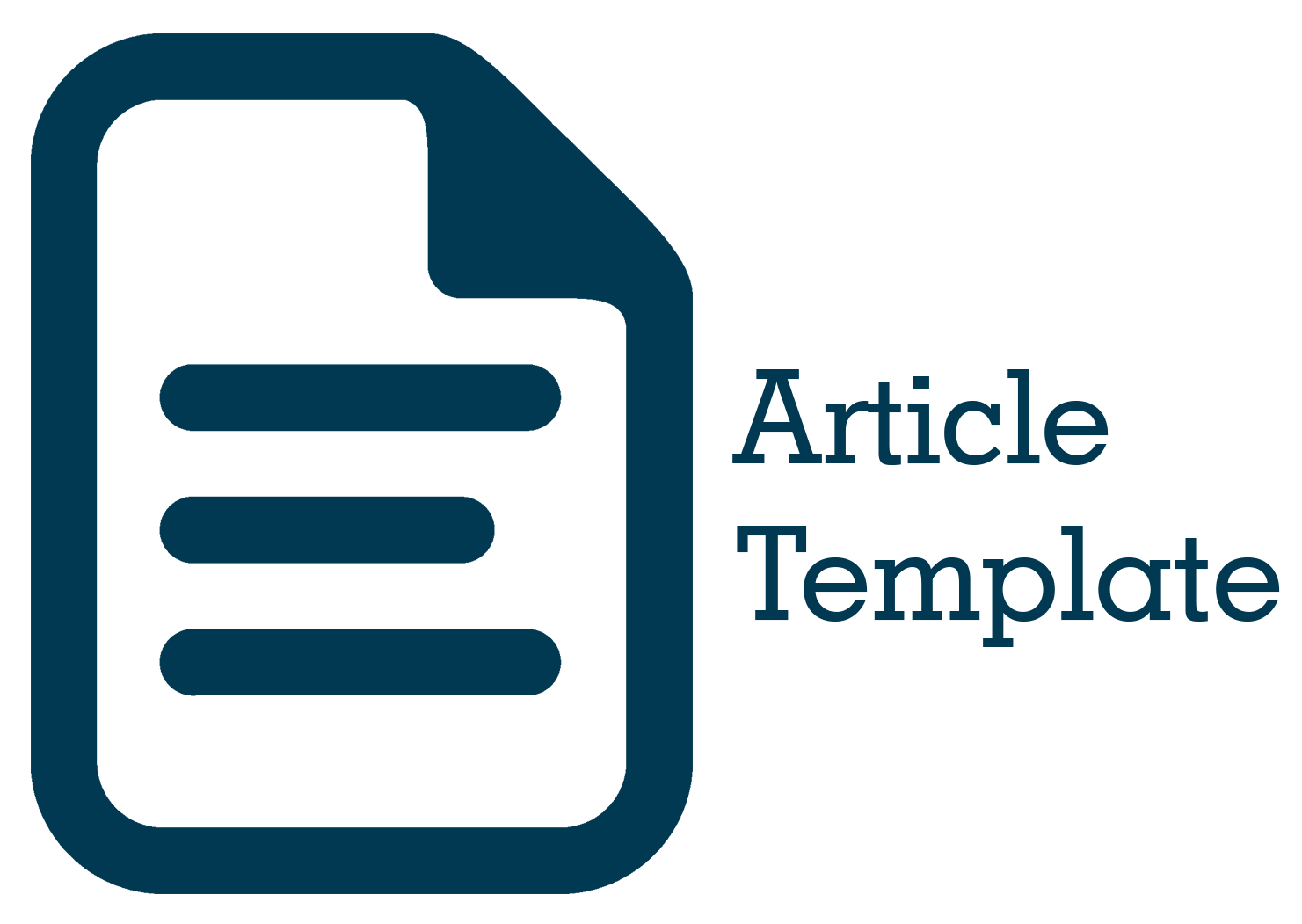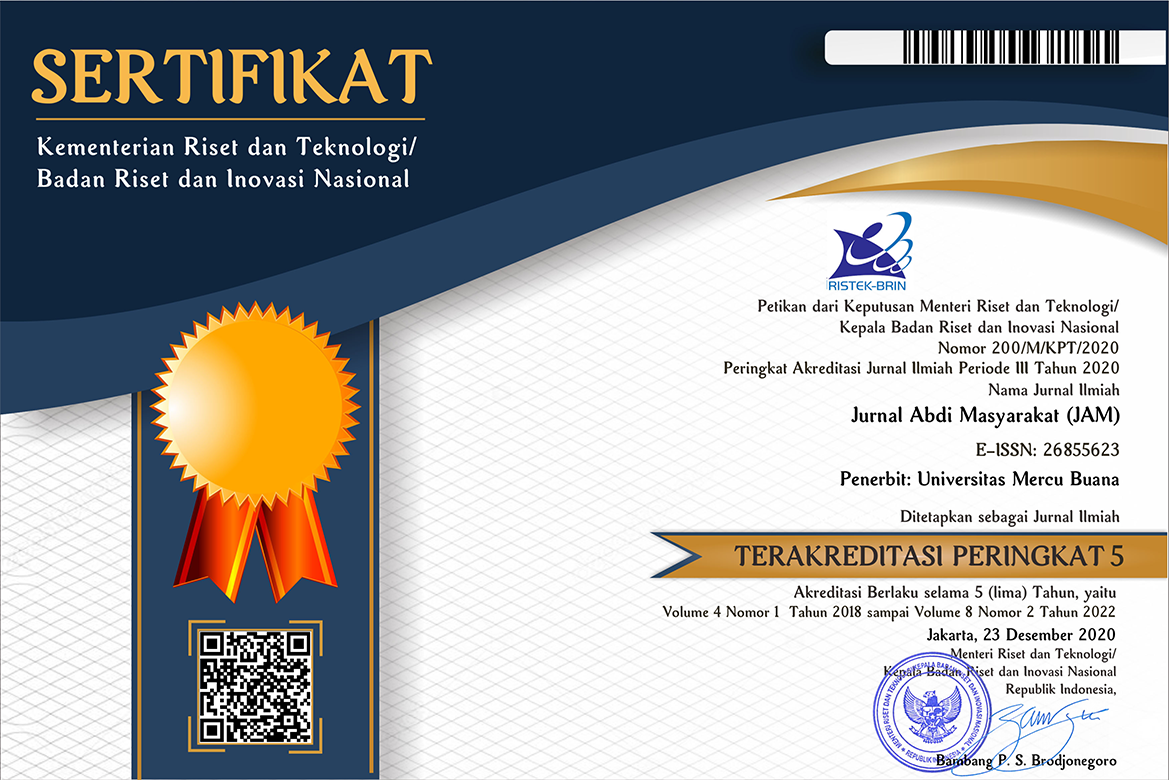Peningkatan Pendapatan Rumah Tangga: Suatu Pengembangan & Pemberdayaan Masyarakat Melalui Konsep Ekonomi Biru di Wilayah Pesisir
Abstract
Keywords
Full Text:
PDFReferences
Maipita I. Mengukur Kemiskinan & Distribusi Pendapatan. Upp Stim Ykpn; 2014. 1–259 p.
Junida AI, Subagyo. Kontribusi ekonomi maritim ditargetkan capai 12.5 persen pada 2045. https://www.antaranews.com/berita/2310122/kontribusi-ekonomi-maritim-ditargetkan-capai-125-persen-pada-2045 [Internet]. 2021;1–4. Available from: https://www.antaranews.com/berita/2310122/kontribusi-ekonomi-maritim-ditargetkan-capai-125-persen-pada-2045
Ayilu RK, Fabinyi M, Barclay K, Bawa MA. Blue economy: industrialisation and coastal fishing livelihoods in Ghana. Rev Fish Biol Fish [Internet]. 2023;1–18. Available from: https://doi.org/10.1007/s11160-022-09749-0
Burgess MG, Clemence M, McDermott GR, Costello C, Gaines SD. Five rules for pragmatic blue growth. Mar Policy. 2018;87:331–9.
Lee K-H, Noh J, Khim JS. The Blue Economy and the United Nations’ sustainable development goals: Challenges and opportunities. Environ Int [Internet]. 2020;137:105528. Available from: https://doi.org/10.1016/j.envint.2020.105528
Graziano M, Alexander KA, Liesch M, Lema E, Torres JA. Understanding an emerging economic discourse through regional analysis: Blue economy clusters in the US Great Lakes basin. Appl Geogr [Internet]. 2019;105:111–23. Available from: https://doi.org/10.1016/j.apgeog.2019.02.013
Cusack C, Sethi SA, Rice AN, Warren JD, Fujita R, Ingles J, et al. Marine ecotourism for small pelagics as a source of alternative income generating activities to fisheries in a tropical community. Biol Conserv. 2021;261:109242.
Zikargae MH, Woldearegay AG, Skjerdal T. Empowering rural society through non-formal environmental education: An empirical study of environment and forest development community projects in Ethiopia. Heliyon [Internet]. 2022;8(3):e09127. Available from: https://doi.org/10.1016/j.heliyon.2022.e09127
Wikipedia. Segarajaya, Tarumajaya, Bekasi [Internet]. Lisensi Creative Commons Atribusi-Berbagi Serupa. Jakarta; 2023 [cited 2023 Apr 4]. p. 1. Available from: https://id.wikipedia.org/wiki/Segarajaya,_Tarumajaya,_Bekasi
Smith-Godfrey S. Defining the blue economy. Marit Aff. 2016;12(1):58–64.
Asmara AY, Oktaviyanti D, Alamsyah P, Zulhamdani M. Science-techno park and industrial policy in Indonesia. Scholars’ Press; 2018.
Lazuardi G, Aji W. Tangani Kemiskinan Ekstrem, Masyarakat Pesisir Perlu Diberdayakan Artikel ini telah tayang di Tribunnews.com dengan judul Tangani Kemiskinan Ekstrem, Masyarakat Pesisir Perlu Diberdayakan, https://www.tribunnews.com/nasional/2023/10/10/tangani-kemiskinan-. https://www.tribunnews.com/nasional/2023/10/10/tangani-kemiskinan-ekstrem-masyarakat-pesisir-perlu-diberdayakan. 2023;1–2.
Mahbub Ul Haq. The poverty curtain: Choices for the third world. Columbia University Press; 1976.
Weisskoff R, Wolff EN. The structure of income inequality in Puerto Rico. J Dev Econ. 1981 Oct;9(2):205–28.
Falkingham J, Namazie C. Measuring health and poverty: a review of approaches to identifying the poor. London DFID Heal Syst Resour Cent. 2002;
Berkman LF, Macintyre S. The measurement of social class in health studies: old measures and new formulations. IARC Sci Publ. 1997;(138):51–64.
Xavier FMF, Ferraz MPT, Marc N, Escosteguy NU, Moriguchi EH. Elderly people’s definition of quality of life. Rev Bras Psiquiatr. 2003;25(1):31–9.
Yadollahi M, Paim LH. Measurement of Family Economic Status. J Am Sci. 2010;6(11):756–60.
Sahn DE, Stifel D. Exploring alternative measures of welfare in the absence of expenditure data. Rev Income Wealth. 2003;49(4):463–89.
Menteri Desa Pembangunan Daerah Tertinggal dan Transmigrasi Republik Indonesia. Peraturan Menteri Desa, Pembangunan Daerah Tertinggal, Dan Transmigrasi Republik Indonesia Nomor 11 Tahun 2022 Tentang Penggerakan Swadaya Masyarakat [Internet]. 2022 p. 1–13. Available from: https://peraturan.bpk.go.id/Home/Details/241000/permendesa-pdtt-no-11-tahun-2022
Mardikanto T, Poerwowo S. Pemberdayaan Masyarakat dalam Perspektif Kebijakan Publik. Bandung: Alfabeta; 2013.
Pahlevi AS. Gagasan Tentang Pengembangan Ekonomi Kreatif Nasional (Studi pada Potensi, Peluang dan Tantangan Ekonomi Kreatif di Kota Malang). In: Seminar Nasional Seni dan Desain 2017 (pp 185-188) State University of Surabaya. 2017.
Subekti I. Manajemen Koperasi dalam rangka pengelolaan hutan rakyat dan pengaruhnya terhadap ketahanan ekonomi masyarakat (Studi Pada Koperasi Wana Lestari Menoreh di Kabupaten Kulon Progo DIY). J Ketahanan Nas. 2016;22(2):158–79.
Altman M. Handbook of contemporary behavioral economics: foundations and developments. Routledge; 2015.
Baker J, Grewal D, Parasuraman A. The influence of store environment on quality inferences and store image. J Acad Mark Sci. 1994;22(4):328–39.
Bitner MJ. Evaluating service encounters: the effects of physical surroundings and employee responses. J Mark. 1990;69–82.
Kivela J, Inbakaran R, Reece J. Consumer research in the restaurant environment. Part 3: analysis, findings and conclusions. Int J Contemp Hosp Manag. 2000;12(1):13–30.
Kim WG, Moon YJ. Customers’ cognitive, emotional, and actionable response to the servicescape: A test of the moderating effect of the restaurant type. Int J Hosp Manag. 2009;28(1):144–56.
Robson SKA. Turning the tables. Cornell Hosp Q. 1999;40(3):56
DOI: http://dx.doi.org/10.22441/jam.v10i1.24646
Refbacks
- There are currently no refbacks.
Copyright (c) 2024 Jurnal Abdi Masyarakat (JAM)

This work is licensed under a Creative Commons Attribution-ShareAlike 4.0 International License.
Indexing by :

|
|

|

|

|

|

|

This work is licensed under a Creative Commons Attribution-ShareAlike 4.0 International License
Jurnal Abdi Masyarakat
Pusat Pengabdian Pada Masyarakat
Jl. Raya Meruya Selatan, Kembangan, Jakarta 11650
Tlp./Fax: +62215871335
p-ISSN: 2460-352X
Online-ISSN: 2686-5623
http://publikasi.mercubuana.ac.id/index.php/jam








